Bangladesh must push for urgent US trade talks

Business leaders and economists have called upon the government to initiate immediate high-level negotiations with the United States administration following President Donald Trump's imposition of reciprocal tariffs, warning that failure to secure concessions could erode the nation's competitive edge in its most lucrative export market.
The collective appeal comes as Bangladesh's ready-made garment sector, which accounts for over 90 percent of its exports to the US, now faces an expansive 37 percent tariff, a dramatic increase from the previous rate of around 15 percent.
Industry experts maintain that despite this substantial hike, Bangladesh retains significant advantages that could be leveraged during negotiations, including substantially lower production costs compared to regional competitors like China and Vietnam, both of whom have been hit with higher tariffs at 54 percent and 46 percent respectively.
The Trump administration's sweeping tariff measures have precipitated what economists describe as the most significant transformation of international trade architecture in decades.
"The world has witnessed an unprecedented shift in the global trading regime with the introduction of reciprocal tariffs by the Trump administration, signaling a potential end, or at least a significant transformation, of the Most Favoured Nation (MFN) principle that has long been a cornerstone of the GATT/WTO framework," said Professor Selim Raihan, executive director of the South Asian Network on Economic Modeling.
Raihan elaborated on the profound implications of this policy shift, saying, "The new system of variable, country-specific tariffs creates unprecedented uncertainty."
For developing economies like Bangladesh that have built their growth models around predictable trade rules, this presents existential challenges, he said. "Our research indicates these measures could reduce developing nations' export earnings by 15-20 percent annually if left unaddressed."
The economics professor emphasised strategic adaptation.
According to him, Bangladesh must pursue a three-pronged response: domestic policy reforms to enhance competitiveness, active participation in reshaping multilateral trade institutions and the cultivation of deeper bilateral partnerships to secure preferential access.
Hafizur Rahman, administrator of the Federation of Bangladesh Chambers of Commerce and Industry, highlighted Bangladesh's strong case for tariff mitigation.
"When we examine comparative tariff rates, we find India facing just 26 percent and Pakistan 29 percent, despite similar trade profiles. This disparity suggests considerable room for negotiation," he told The Daily Star.
Meanwhile, Mohammad Hatem, president of the Bangladesh Knitwear Manufacturers and Exporters Association (BKMEA), highlighted specific bargaining chips.
"We currently impose substantial duties on certain US imports, particularly alcoholic beverages," he said. "A reciprocal reduction could demonstrate goodwill while costing our exchequer relatively little.
"More significantly, as the world's fifth-largest cotton importer – with substantial purchases from American growers – we possess considerable untapped leverage."
Industry analysts also caution that conventional negotiation approaches may prove ineffective against the Trump administration's unconventional trade calculus.
Syed M Tanvir, managing director of Pacific Jeans, said, "The administration's so-called 'reciprocal' tariffs bear little relation to actual duty structures. Their calculations incorporate trade deficit figures, perceived currency manipulation and even subjective assessments of regulatory barriers.
"To reduce our tariff burden, we must address the core metric driving these decisions – the bilateral trade imbalance."
He said strategic increases in imports of high-value American products, particularly in defence, aerospace and advanced machinery sectors, could significantly improve Bangladesh's negotiating position.
The executive offered a blunt assessment of political realities.
"President Trump operates as a transactional dealmaker rather than a traditional statesman. Bangladesh must structure any proposal as a mutually beneficial exchange – we need to identify concessions that deliver tangible wins he can showcase to his domestic constituency," Tanvir said.
Anwar-Ul-Alam Chowdhury Parvez, president of the Bangladesh Chamber of Industries and a former leader of the Bangladesh Garment Manufacturers and Exporters Association (BGMEA), provided an analysis of vulnerable sectors.
He said preliminary assessments suggest home textiles, heavyweight jerseys and denim products will bear the brunt of these tariffs due to their thinner profit margins.
For these segments, Chowdhury said that a 37 percent duty could erase competitiveness entirely without prompt intervention.
He also suggested reviving a longstanding trade proposal that could serve as a centrepiece in negotiations.
"We should reinvigorate our request for duty-free access when using US cotton. This existing framework – where garments manufactured from American cotton receive preferential treatment – could be expanded to offset the new tariff burden while simultaneously benefiting US agricultural interests," he added.
Meanwhile, Faruque Hassan, a former president of the BGMEA, warned of impending market disruptions, opining that the new tariffs would trigger a brutal price war across all exporting nations.
"Every competitor will be forced to absorb costs or compromise on quality to maintain their market share. In this environment, our traditional cost advantage alone may prove insufficient."
As such, Hassan advocated moving beyond price competition.
"The solution lies in vertical integration and value addition. By bringing more production processes – from fabric to accessories – under one roof, we can achieve the efficiency gains needed to offset these tariffs while improving our positioning in the global supply chain."
Mustafizur Rahman, a distinguished fellow at the Centre for Policy Dialogue, highlighted Bangladesh's growing influence as a cotton importer.
He said Bangladesh's annual purchases of US cotton now surpassed $1 billion, making the country fifth-largest global buyer. "This gives us substantial leverage that remains underutilised in trade discussions."
The economist proposed a comprehensive negotiation framework. "We should structure a package deal that ties our continued cotton imports to tariff relief for finished garments. Such an arrangement would secure stable demand for American farmers while preserving our export competitiveness – the definition of a win-win scenario."
As Bangladesh prepares for complex negotiations, trade experts unanimously stressed the need for coordinated action across government and private sectors.
The consensus is that while the challenges posed by the new tariffs are substantial, Bangladesh retains multiple avenues to protect its vital export interests through strategic diplomacy, calculated concessions, and the smart deployment of its growing economic influence.
The coming months will prove critical in determining whether Bangladesh can transform this trade policy upheaval into an opportunity to secure more favourable terms and deepen economic ties with its most important export destination.
With the right combination of negotiation strategy and domestic adaptation, industry leaders remain cautiously optimistic that the nation can not only weather this storm but emerge with a stronger, more diversified trade relationship with the United States.
Trade experts advised that Bangladesh must immediately activate all available diplomatic channels to address the sweeping US tariff measures.
This includes convening urgent meetings under the Trade and Investment Cooperation Forum Agreement (Ticfa) while accelerating negotiations for more comprehensive trade pacts like a Free Trade Agreement (FTA) or Comprehensive Economic Partnership Agreement (CEPA).
Mahfuz Kabir, research director at the Bangladesh Institute of International and Strategic Studies, cautioned against over-reliance on tariff tweaks.
He said, "The National Board of Revenue's standard measures won't suffice here. Ticfa provides a ready-made platform for swift, high-level dialogue to contain the damage."
Zahid Hussain, former lead economist of the World Bank's Dhaka office, outlined an urgent action plan for exporters.
"The entire sector must unite under BGMEA and BKMEA to establish a non-negotiable position - these tariff costs cannot fall solely on manufacturers," he said.
The economist painted a grim picture of the alternatives. "With razor-thin margins already, especially in woven garments, absorbing these duties would be catastrophic."
Hussain highlighted the particular injustice facing shipments already in transit.
"Contracts signed months ago never accounted for these tariffs. Buyers invoking force majeure would be completely inappropriate - this isn't an act of God but a policy change," he said.
Ashikur Rahman, principal economist at the Policy Research Institute of Bangladesh, contextualised the move's seismic implications.
He said, "By invoking an 'economic emergency' to bypass WTO rules, the US has potentially unravelled decades of multilateral trade consensus."
The economist noted Bangladesh's paradoxical position. "While our nominal tariffs average 26 percent, certain sectors like automotive face much higher duties. Yet we impose zero tariffs on strategic US exports like cotton - a potential bargaining chip."
Preferring anonymity, a Bangladesh Bank official drew parallels with past trade shocks.
The official said that after the Multifibre Arrangement ended in 2005, Bangladesh adapted. "Today, despite 12 percent average duties, the US remains our top market because our apparel is essential.
"Exporters must stop acting as price-takers. When fuel costs rise, we don't stop importing - we adjust. This requires the same pragmatism."
Taskeen Ahmed, president of Dhaka Chamber of Commerce and Industry, warned of cascading economic consequences from the US tariff hike.
"This isn't just an export problem - it's a macroeconomic timebomb," he cautioned.
"Shrinking export earnings will strain our foreign reserves, potentially triggering currency depreciation and imported inflation that could ripple through the entire economy."
The garment sector's crisis carries particular alarm bells. Ahmed said, "We're staring at potential mass unemployment that could undermine Bangladesh's hard-won economic stability."
Sounding the alarm, Showkat Aziz Russell, president of the Bangladesh Textile Mills Association, said, "New tariffs could cripple our competitiveness overnight. To survive, we must pivot rapidly towards higher value-added products while dramatically improving production efficiency."
Kamran T Rahman of the Metropolitan Chamber of Commerce offered cautious optimism, saying, "While painful, our 37 percent tariff compares favourably to higher rates slapped on competitors. Vietnam faces 46 percent, China 54 percent - this could ironically preserve some competitive edge."
The business leader predicted inflationary waves reaching American shores.
"US companies will face impossible choices - swallow profit cuts or risk consumer backlash with price hikes. For premium products, absorption may work. But budget items? That math simply won't add up," Rahman added.
Saiful Islam, former head of both the Metropolitan Chamber and leather goods exporters, said, "Overnight, decades-old trade terms have been upended. Products that enjoyed 8-15 percent duties - apparel, leathergoods, pharmaceuticals - now face the full 37 percent hammer blow."
The LDC status paradox also troubles Islam. "Our limited capacity to increase US imports weakens our negotiating hand. Still, we must leverage every LDC provision while considering selective tariff reductions through the NBR to rebalance trade flows."
Moinul Khan of the Bangladesh Trade and Tariff Commission revealed timing frustrations. "We were literally preparing for trade talks when these tariffs hit.
"However, the door hasn't slammed shut. Rigorous impact analysis will guide our negotiation strategy to protect vital exports," he added.



 For all latest news, follow The Daily Star's Google News channel.
For all latest news, follow The Daily Star's Google News channel. 

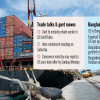
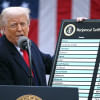
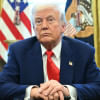
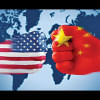
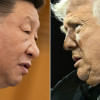


Comments